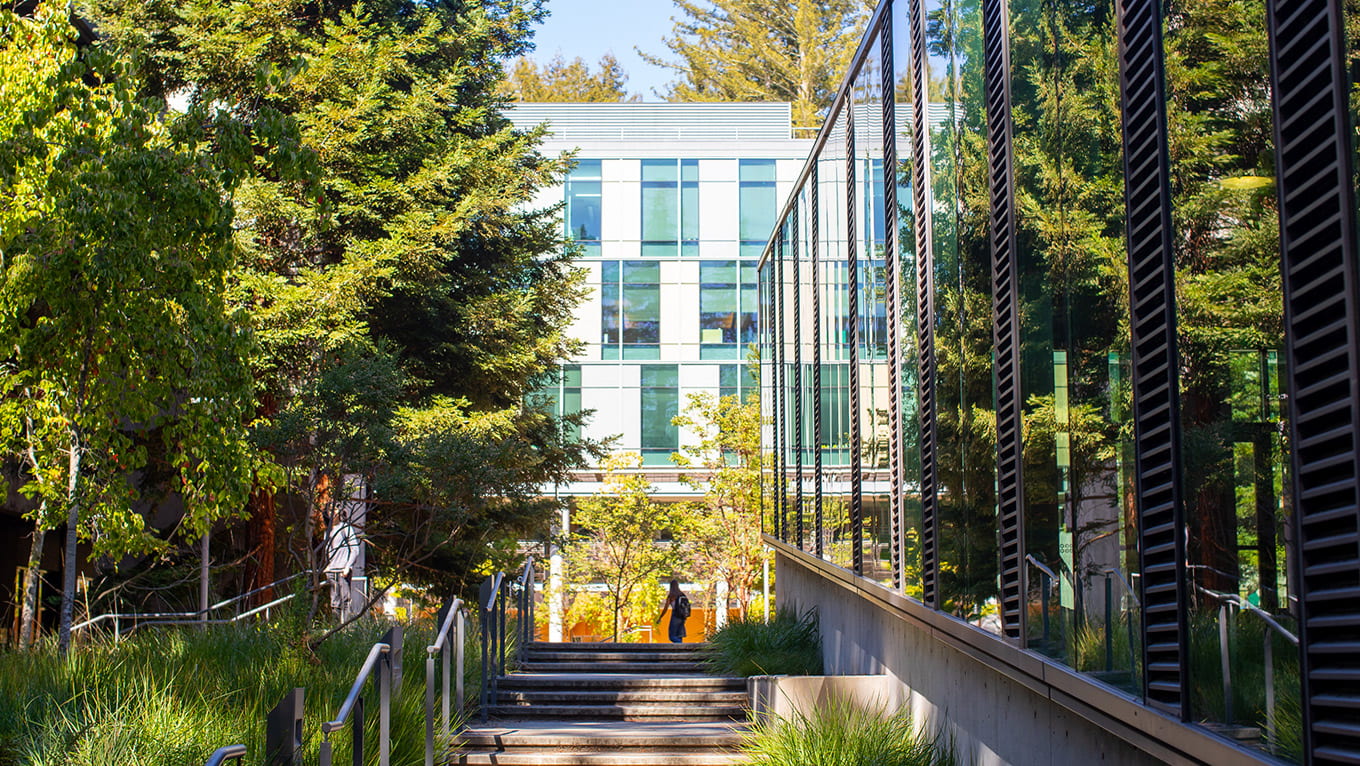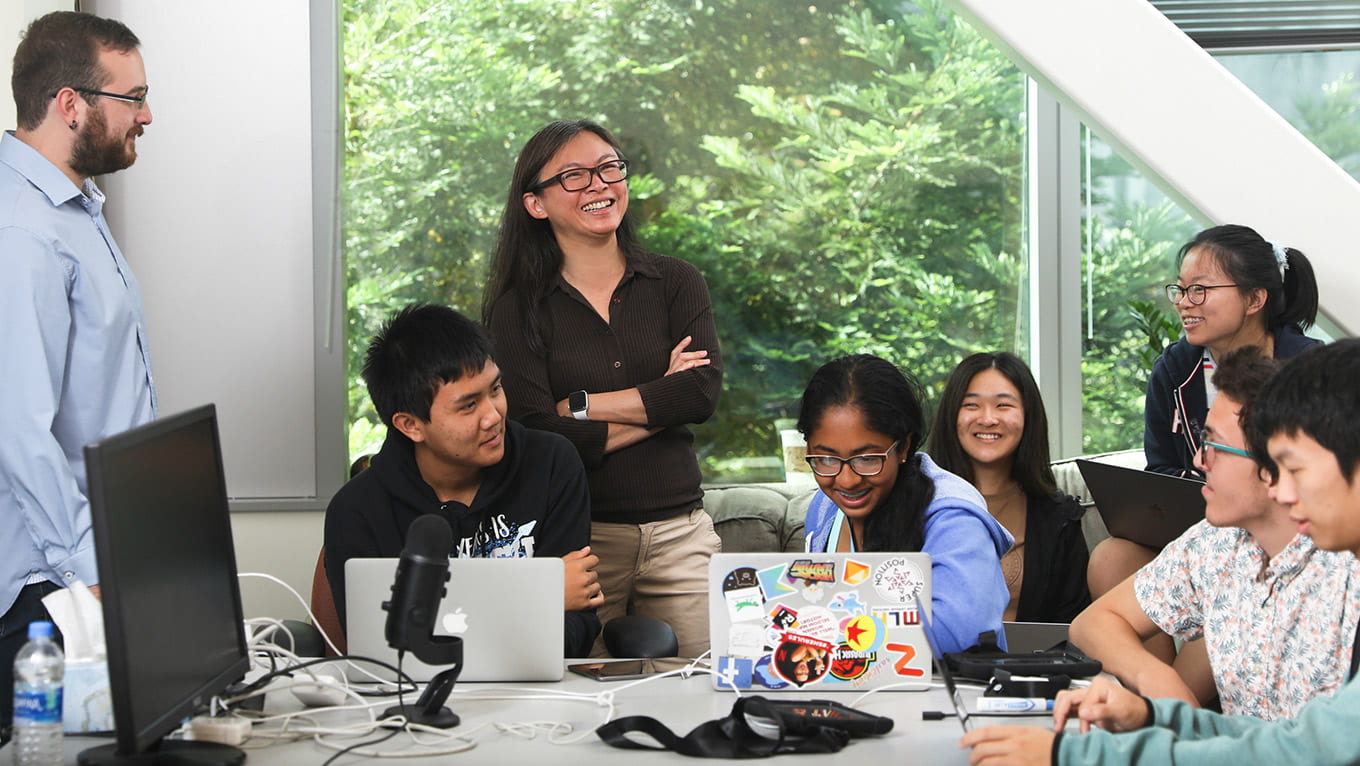The Baskin School of Engineering welcomes 13 new faculty members this academic year, bringing the total faculty count to 127.
The new faculty bring expertise in a wide range of subjects, including data science, accessible technology and games, mathematical biology, genomics, machine learning, artificial intelligence, and more.
View new Faculty of the Baskin School of Engineering, 2021–22:

David Bernick, Associate Teaching Professor
Biomolecular Engineering
Academic interests: Biofuel production using reengineered extremophiles; next-generation sequencing applications including genome assembly, metagenome assembly, and RNA transcriptomics; single-molecule sequencing of highly structured tRNA; novel halovirus discovery.
David Bernick has taught in the Biomolecular Engineering Department as an adjunct professor and lecturer since 2011. Bernick’s research focuses on the use of high throughput sequencing to discover novel genes of interest and then use molecular machines to build high-value products to solve issues in industries such as energy, health, and waste. Bernick was one of nine UC Santa Cruz instructors who received the UCSC 2021 Excellence in Teaching Award.
What do you look forward to most as a faculty member at Baskin Engineering? Building the future. Every day, we have the opportunity to discover. More than that, we have the calling to mentor the discovery and building of that future. Every discipline of Baskin Engineering shares in this future-craft. I can’t imagine being anywhere else.
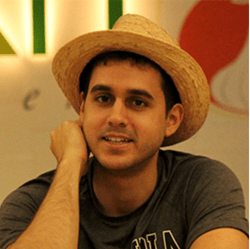
Evangelos (Vaggos) Chatziafratis, Assistant Professor
Computer Science and Engineering
Academic interests: Theoretical computer science.
Vaggos Chatziafratis joins Baskin Engineering from Google Research New York, where he was a visiting faculty researcher in the Algorithms group. He works on theoretical computer science, with a focus on algorithms and machine learning theory. His Ph.D. thesis was on the topic of hierarchical clustering, advised by Tim Roughgarden and Moses Charikar at Stanford University. During the 2021–22 academic year, he will be a visiting postdoc at Northwestern University’s Theory Group and a FODSI fellow at MIT and Northeastern University.
Who inspires you? Being inspired is expressed as the desire to follow the footsteps taken by another person. Throughout my life, my teachers have consistently been a great source of such inspiration. Whether at home or in school and later in the university, I have always had the privilege to be among great mentors who believed in me and helped me believe in myself. Going into academia, I believe, is good evidence and my way of showing how inspiring their lives have been for me.

Reuben Domike, Teaching Professor
Technology and Information Management
Academic interests: Pharmaceutical manufacturing quality, manufacturing location-specific risk models, and benefit-risk assessment of new technologies and drug applications.
Reuben Domike specializes in quality management systems in pharmaceutical manufacturing and entrepreneurship. Over the past 20 years, Domike has been involved in developing technology start-up companies in the areas of software, management consulting, industrial water filters, and essential oil extraction. He has also worked in the manufacturing industry in pharmaceuticals, chemicals, and pulp/paper. Domike’s current research activities are primarily in collaboration with the U.S. Food and Drug Administration (FDA) and the Center for Biomedical Innovation (CBI) at MIT.
What do you look forward to most as a faculty member at Baskin Engineering?
As part of the faculty at Baskin Engineering, I am most looking forward to further students’ opportunities related to entrepreneurship and engagement with the local business and non-profit community.
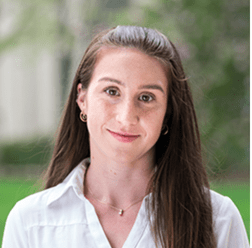
Leilani Gilpin, Assistant Professor
Computer Science and Engineering
Academic interests: Explainable AI (XAI), interpretable machine learning, anomaly detection, commonsense reasoning, anticipatory thinking for autonomy, semantic representations of language, story-enabled intelligence, AI and ethics.
Leilani Gilpin joins Baskin Engineering from Sony AI, where she worked as a research scientist studying explainability in AI agents. Since completing her Ph.D. at MIT in electrical engineering and computer science, her research has centered around symbolic reasoning and data-driven engineering. Gilpin is interested in developing intelligent mechanisms that can explain themselves for diagnosis, accountability, and liability.
What inspires you? I am inspired by finding out what happens when complex systems fail. For example, if an autonomous vehicle gets in an accident, can we find out what part, connection, or external factor is faulty or responsible and why.
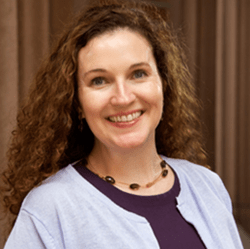
Dianne Hendricks, Associate Teaching Professor
Biomolecular Engineering
Academic interests: Bioengineering, engineering education, technical communication, engineering ethics and social justice, diversity and inclusion, accessible design and play technology.
Dianne Hendricks brings 15 years of teaching and mentoring experience to Baskin Engineering. She has spent the majority of her career teaching courses in introductory bioengineering, bioengineering research design, technical communication, and ethics and social justice in engineering. Hendricks is a strong advocate for promoting diversity and inclusion in engineering education and providing opportunities for K-12 students to get involved in science, technology, engineering, and math (STEM). Her research publications focus on evidence-based teaching and learning strategies in engineering education. Hendricks joins Baskin Engineering from the University of Washington (UW), where she was awarded the 2020 UW College of Engineering Faculty Teaching Award and co-founded HuskyADAPT (Accessible Design and Play Technology), an inclusive, interdisciplinary community at UW that supports the design of accessible play technologies.
Who inspires you? Students inspire me! My main goal is to provide students with the best possible learning environment and value in every class. I use inclusive teaching strategies to support students from diverse backgrounds, help students explore the myriad ethical issues involved in engineering, and create impactful opportunities for students to develop their engineering skills while also making a positive contribution to society. In return, I am inspired and learn from my students every single day.
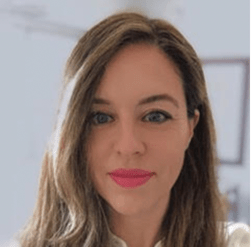
Vanessa Jonsson, Assistant Professor
Applied Mathematics
Academic interests: Mathematical biology, computational biology, cancer immunology, viruses and antibodies, treatment optimization.
Vanessa Jonsson is interested in developing mathematical and computational methods for the analysis of genomic and immunological data to study the dynamics of host immunity in the context of human disease and treatment optimization. Jonsson’s lab incorporates research methods from the fields of applied mathematics, genetics, and biomolecular engineering in an effort to understand how the immune system evolves with human disease.
What do you look forward to most as a faculty member at Baskin Engineering? It’s an immense privilege to belong to a vibrant academic community across Applied Math, Biomolecular Engineering and the Genomics Institute at UCSC. I am looking forward to teaching and mentoring students and working with them to build a supportive, interdisciplinary research group so they can flourish personally and scientifically. I am proud to serve the Baskin School of Engineering, UCSC, and more broadly, the University of California.
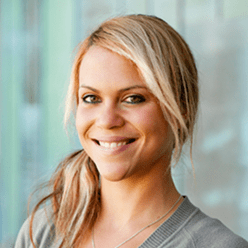
Alexandra Kolla, Assistant Professor
Computer Science and Engineering
Academic interests: Spectral graph theory, algorithms, complexity, convex programming, quantum computing.
Alexandra Kolla’s research lies in theoretical computer science. She is largely interested in the use of spectral methods in graph algorithms and developing new spectral techniques that use the full power of graph spectra, as well as in exploring the connections between statistical physics and combinatorial optimization. Kolla believes that such techniques will help shed light into various unanswered complexity questions, like the Unique Games Conjecture. She is also working on various aspects of quantum computation and quantum complexity theory.
What inspires you? I am inspired by discovering connections between seemingly unrelated areas of mathematics and computer science. Those connections are part of a deeper truth waiting to be discovered, and often lead to being able to use tools from one area to resolve major open questions in another. I am also inspired by people that have high levels of loyalty and determination.
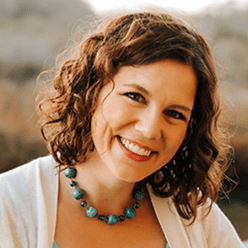
Karen Miga, Assistant Professor
Biomolecular Engineering
Academic interests: Genomics, chromosome biology, epigenetics, biomedical applications, telomere-to-telomere (T2T) assembly of the human genome, pangenomics, computational genetic tools.
Since joining UC Santa Cruz as an assistant research scientist in 2012, Karen Miga’s focus on computational and experimental approaches to reveal complex, previously unseen parts of the human genome has led to the creation of the Telomere-to-Telomere (T2T) Consortium, the international research project to sequence the first truly complete human genome. Additionally, Miga is leading the Human Pangenome Reference Consortium’s effort on sequencing the genomes of 350 diverse humans to develop a complete and comprehensive map of genome variation. Miga’s work is motivated by the opportunity to make important advancements in genome biology and contributions to human biomedical research.
What do you look forward to most as a faculty member at Baskin Engineering? I very much look forward to being part of this highly collaborative and supportive Baskin School of Engineering community. And I aspire to create a welcoming research lab that offers high quality science and promotes creativity.

Paul Parker, Assistant Professor
Statistics
Academic interests: Bayesian methods, survey methods, dependent data (spatial, time-series, functional data), business and government applications, machine learning, data science.
Paul Parker recently received a Ph.D. in statistics from the University of Missouri. While there, he received the U.S. Census Bureau Dissertation Fellowship and the University of Missouri Population, Education and Health Center Interdisciplinary Doctoral Fellowship. Parker is interested in modeling dependent data—e.g., spatial, time-series, and functional—for a variety of statistics, social science, and ecological applications. He’s also interested in using machine learning and data science techniques to improve statistical models.
What do you look forward to most as a faculty member at Baskin Engineering? I am most looking forward to interdisciplinary collaboration with the world-class faculty at Baskin Engineering. My field (statistics) is grounded in collaboration with other disciplines. Being part of a school with a strong focus on modern education and research, while maintaining a commitment to social responsibility and diversity, is the perfect foundation for exciting and innovative research.
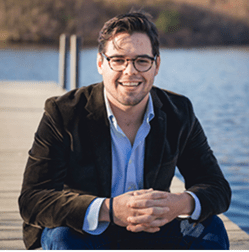
Andrew Quinn, Assistant Professor
Computer Science and Engineering
Academic interests: Data-intensive software reliability.
Andrew Quinn, a recent Ph.D. graduate from the University of Michigan, is interested in improving software reliability. His research focuses on applying data-intensive techniques to prevent, detect, and resolve software errors. Quinn’s thesis proposed a model for observing program executions to perform tasks like security forensics, debugging, and data provenance.
What inspires you? I’m super fascinated with the poorly understood. Not necessarily the ‘unknown’ but the things that we know but don’t quite understand.
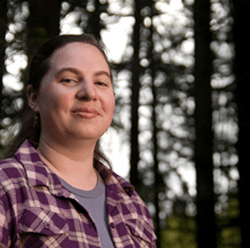
Kathryn “Kate” Ringland, Assistant Professor
Computational Media
Academic interests: Accessible technology, games, social computing.
Kate Ringland’s work largely centers on understanding, designing, and developing technology that assists people with disabilities. She is primarily interested in illuminating how marginalized communities leverage social media and games for socialization and support using a critical disability lens. Ringland’s additional research interests include examining how the design of technology for psychosocial disability is impacted and influenced by people’s other identities and the communities they live in.
Who inspires you? As someone who is disabled and works with communities that support disabled people, I am first and foremost inspired by those communities. They constantly push me to ask the hard questions and think outside the box for the answers. I am also deeply indebted and inspired to the musicians BTS and their fandom, ARMY, for motivating me to continue to push to create an inclusive, supportive environment for myself and those who work with me.

Norman Su, Associate Professor and Vice Chair of Human Computer Interaction
Computational Media
Academic interests: Human–computer interaction, computer–supported cooperative work, the humanities, ubiquitous computing, organizational/management science, and science and technology studies.
Norman Su’s research lies at the intersection of human-computer interaction and the humanities. Su’s lab, known as the Authentic User Experience Lab (AUX Lab), uses human-computer interaction to study subcultures and create designs. Through the use of technology, the AUX Lab supports subcultures’ notion of authenticity and creates new frameworks and designs that aim to help people strive for meaningful lives.
What inspires you? The humanities have always inspired my research. There is something about books, music, photography, and paintings that can leave an indelible impression on the psyche. I’ve always been inspired to know why, for example, musicians compose—is it to send a message? Is it to evoke an abstract feeling? Is it about the technical challenge? Is it to make a mark in history? I’ve found that these possible framings on how and why people create can tell us a lot about how and why we design technologies. In my research lab, we seek to synthesize humanistic methods like writing fiction with empirical methods like ethnographic fieldwork to design technologies.
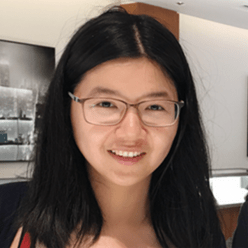
Yuyin Zhou, Assistant Professor
Computer Science and Engineering
Academic interests: Medical image computing, computer vision, machine learning, artificial intelligence.
Yuyin Zhou’s research explores the intersection of medical image computing, computer vision, and machine learning. Recently, she’s been involved in research projects that aim to develop data-efficient and knowledge-aware deep learning techniques that can generalize to different medical tasks without the need for intensive manual labeling efforts. Zhou’s ultimate goal is to make medical AI systems more reliable to deliver transparent and trustworthy solutions in the face of complex real-world clinical settings.
What do you look forward to most as a faculty member at Baskin Engineering? I look forward to working with the faculty and students at Baskin Engineering to solve the important problems in machine learning, computer vision, and medical AI.

